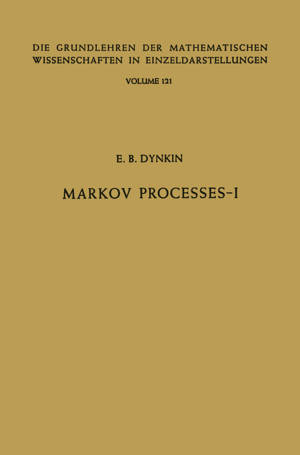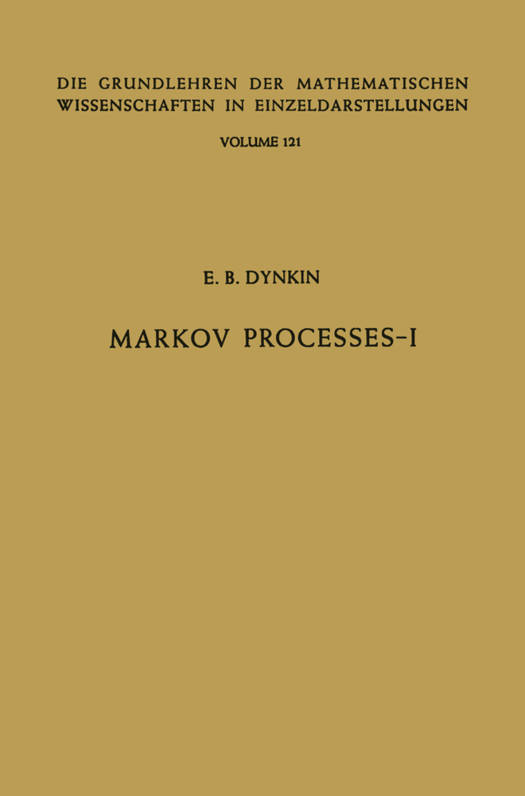
Bedankt voor het vertrouwen het afgelopen jaar! Om jou te bedanken bieden we GRATIS verzending (in België) aan op alles gedurende de hele maand januari.
- Afhalen na 1 uur in een winkel met voorraad
- In januari gratis thuislevering in België
- Ruim aanbod met 7 miljoen producten
Bedankt voor het vertrouwen het afgelopen jaar! Om jou te bedanken bieden we GRATIS verzending (in België) aan op alles gedurende de hele maand januari.
- Afhalen na 1 uur in een winkel met voorraad
- In januari gratis thuislevering in België
- Ruim aanbod met 7 miljoen producten
Zoeken
Omschrijving
The modem theory of Markov processes has its origins in the studies of A. A. MARKOV (1906-1907) on sequences of experiments "connected in a chain" and in the attempts to describe mathematically the physical phenomenon known as Brownian motion (L. BACHELlER 1900, A. EIN- STEIN 1905). The first correct mathematical construction of a Markov process with continuous trajectories was given by N. WIENER in 1923. (This process is often called the Wiener process.) The general theory of Markov processes was developed in the 1930's and 1940's by A. N. KOL- MOGOROV, W. FELLER, W. DOEBLlN, P. LEVY, J. L. DOOB, and others. During the past ten years the theory of Markov processes has entered a new period of intensive development. The methods of the theory of semigroups of linear operators made possible further progress in the classification of Markov processes by their infinitesimal characteristics. The broad classes of Markov processes with continuous trajectories be- came the main object of study. The connections between Markov pro- cesses and classical analysis were further developed. It has become possible not only to apply the results and methods of analysis to the problems of probability theory, but also to investigate analytic problems using probabilistic methods. Remarkable new connections between Markov processes and potential theory were revealed. The foundations of the theory were reviewed critically: the new concept of strong Markov process acquired for the whole theory of Markov processes great importance.
Specificaties
Betrokkenen
- Auteur(s):
- Vertaler(s):
- Uitgeverij:
Inhoud
- Aantal bladzijden:
- 366
- Taal:
- Engels
- Reeks:
- Reeksnummer:
- nr. 121
Eigenschappen
- Productcode (EAN):
- 9783662000335
- Verschijningsdatum:
- 1/08/2012
- Uitvoering:
- Paperback
- Formaat:
- Trade paperback (VS)
- Afmetingen:
- 156 mm x 234 mm
- Gewicht:
- 535 g

Alleen bij Standaard Boekhandel
+ 221 punten op je klantenkaart van Standaard Boekhandel
Beoordelingen
We publiceren alleen reviews die voldoen aan de voorwaarden voor reviews. Bekijk onze voorwaarden voor reviews.









